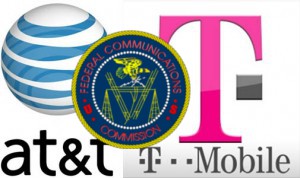
The deal would see Leap purchasing both T-Mobile’s customer base and most of its wireless spectrum, while AT&T would retain a smaller portion of the spectrum, according to a New York Times report yesterday.
[aditude-amp id="flyingcarpet" targeting='{"env":"staging","page_type":"article","post_id":358693,"post_type":"story","post_chan":"none","tags":null,"ai":false,"category":"none","all_categories":"business,entrepreneur,mobile,","session":"A"}']It’s unclear exactly how an AT&T/Leap deal would divide up T-Mobile’s assets, since those details haven’t been released. But VentureBeat as previously reported, AT&T might be willing to divest as much as 40 percent of T-Mobile USA’s asset. It’s thought that a divestiture of this size could change the minds of the Department of Justice and the Federal Communications Commission — both of which have taken issue with the merger.
Leap, which owns and operates the Cricket Wireless brand is primarily in the business of prepaid wireless service. If the AT&T merger does not go through, Leap could purchase T-Mobile’s assets, as it doesn’t look like Deutsche Telekom is interested in continuing its U.S. business. Such a purchase would certainly raise Leap’s national profile, too.
AI Weekly
The must-read newsletter for AI and Big Data industry written by Khari Johnson, Kyle Wiggers, and Seth Colaner.
Included with VentureBeat Insider and VentureBeat VIP memberships.
AT&T and Deutsche Telekom first announced plans for AT&T to acquire T-Mobile USA for $39 billion in March 2011. T-Mobile, which is the fourth largest wireless carrier, has struggled to compete against Verizon, AT&T and Sprint. So, selling to a competitor for a large sum is an attractive option, while AT&T is interested in swallowing up T-Mobile to improve its wireless network infrastructure.
VentureBeat's mission is to be a digital town square for technical decision-makers to gain knowledge about transformative enterprise technology and transact. Learn More